If you are weighing up the benefits of protein powder, this blog post might have the answers you’re looking for.
Like with all things in the health space, there is a lot of confusing information out there. With marketers trying to convince us to buy expensive protein powders in order to ‘blast’ fat and get ‘ripped’ muscles, it’s easy to think that protein powders are the best choice.
So, here we go: Are protein powders actually good for you? And do protein shakes work?
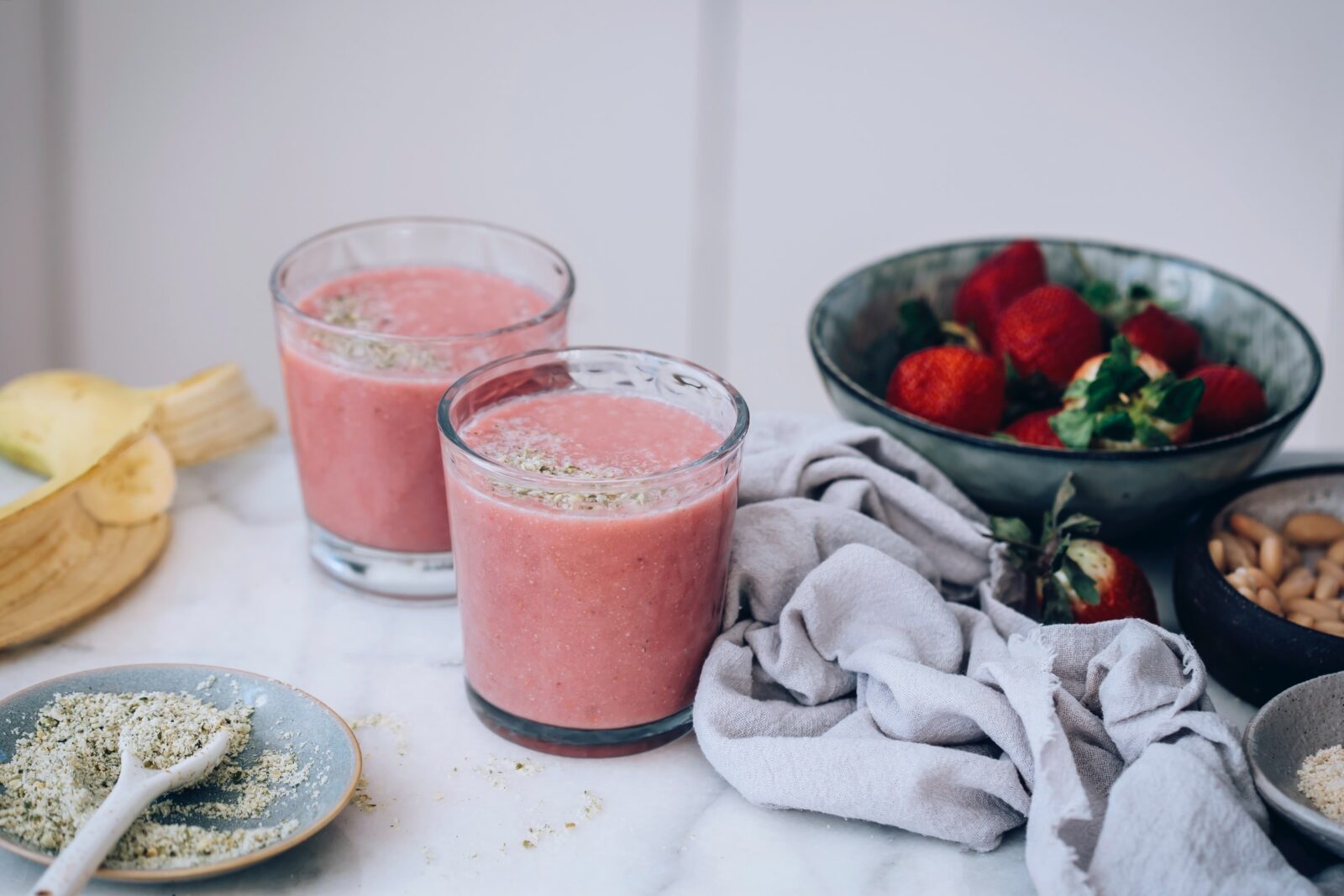
As a dietitian, I bet you can guess that I don’t have protein powders myself nor do I recommend them. I used to have them all the time when I yo-yo dieted, struggled with my weight and over exercised but now I prefer to eat my protein. It’s yummier, cheaper and healthier.
Here are the reasons why I don’t think you need to have protein powders and think the high-protein real food is the best option:
1. They are highly processed
Can you tell me what food protein powders are made from?
Chances are – you have no idea.
Protein powders are so processed that it’s really tricky to work out what food they come from! I’m not saying that ALL processing is bad but when you can’t actually tell where a food is from, it’s a good sign that we are messing with nature – a little too much.
A note about ‘wholefoods’: It’s quite frustrating when people claim that protein powders (or other ‘magical health’ powders) are whole foods. If you can’t tell where the food comes from, then it’s definitively not a whole food. Just because something is made using whole foods, doesn’t make it a whole food. E.g. Rice is a whole food. Rice pudding isn’t…
2. You swap out real foods
Protein powders are being marketed as a healthy alternative to real food which is a bad idea.
There are plenty of real food, high protein options that give you loads of protein very easily (see below for ideas). I’m always an advocate for choosing real whole foods instead of using packaged, processed foods. Trust me – there are heaps of ways to get enough protein in your diet without having to buy expensive tubs of protein powder.
3. You double-up on protein
Most people believe “The more protein I have – the better, leaner, stronger, more ripped, sexier I will become”.
Unfortunately, this is not true.
Your body needs far less protein than you probably think.
I was surprised when I first learned that unless you’re an athlete or really bulking, the average person needs to have about 0.8g of protein per 1kg of body weight. E.g. if you weigh 70kg that equals 64g of protein/day (based on NRV, 2014).
Protein powders also contain trace elements of heavy metals like lead and mercury. Having the recommended dose is fine but overdoing it can put a strain on your kidneys if you’re overweight (Diseases of the Kidney and Urinary Tract, 2007) and liver (Signaling Pathways In Liver Disease, 2009).
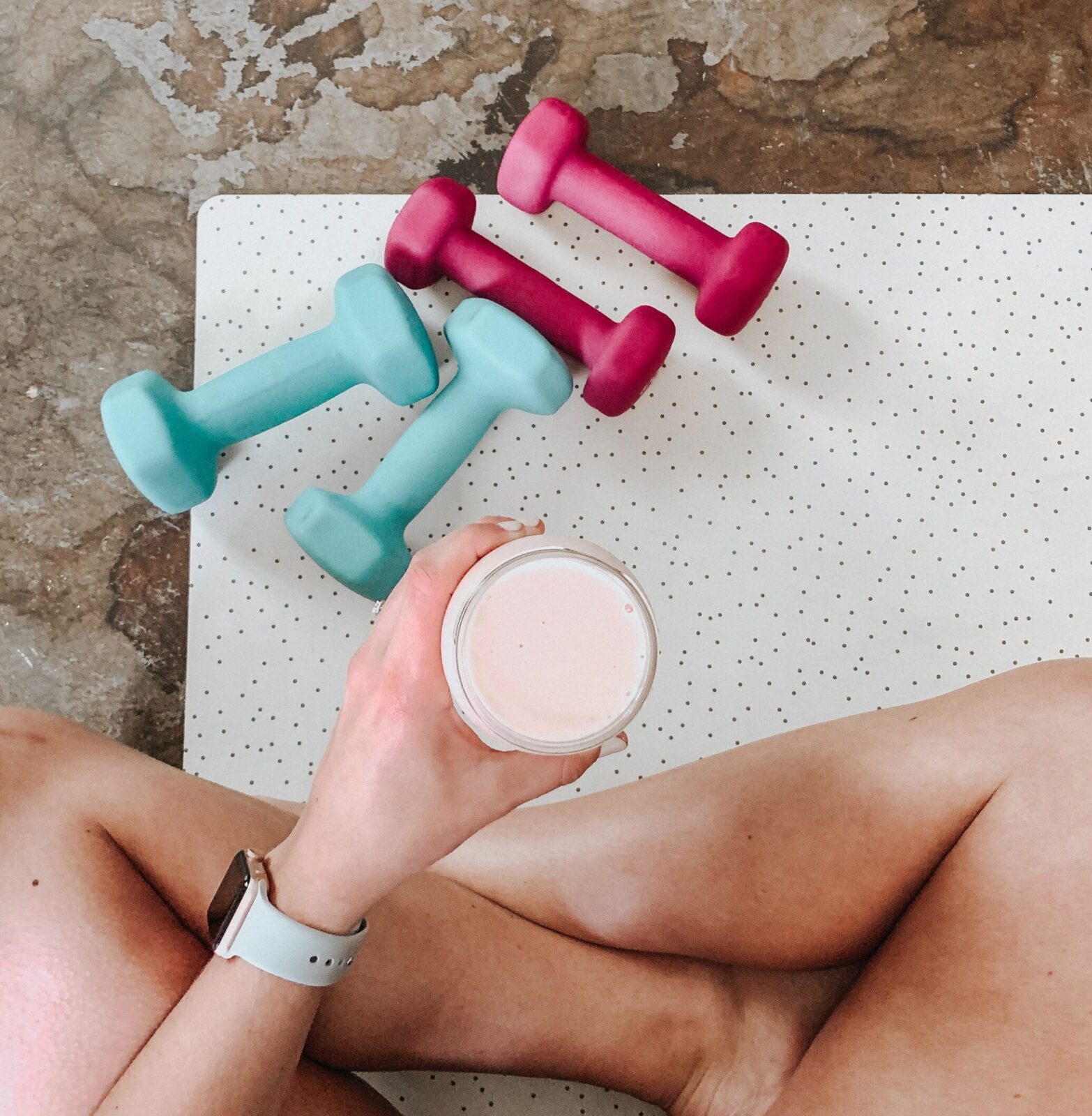
4. They don’t always promote weight loss
So now we know that your body can only have so much protein at a time. So when you have too much protein that your body can’t use – it simply gets turned into fat.
If I was trying to lose weight, I personally wouldn’t ‘add’ something like protein powder into my diet. I’d just focus on eating high protein whole foods (see below) that keeps me feeling fuller for longer instead of drinking extra energy via a product I don’t like the taste of.
5. They are expensive
No wonder people think that healthy eating is expensive when they have supplements and superfoods. A tub of protein powder is really expensive…particularly when you consider you can get all the protein you need from real food.
You need to eat food anyway so it makes commercial sense to get protein from foods – not tubs. I think we are getting duped into thinking that adding protein supplements into our diet is going to be a good thing when in my opinion, it’s overrated and costly.
6. Too much protein isn’t good for your gut
Have you ever had a protein shake and farted all day?
Like seriously – ALL day? Ever noticed that protein powders can make you feel bloated and lead to constipation?
If you’ve ever overdone it, you’ll have realised that there can be side effects of protein powder, especially for your gut (The Impact of Diet and Lifestyle on Gut Microbiota and Human Health, 2014). If something is causing your gut to stop functioning properly, then you probably don’t need a dietitian or doctor to tell you that it isn’t ideal for your body.
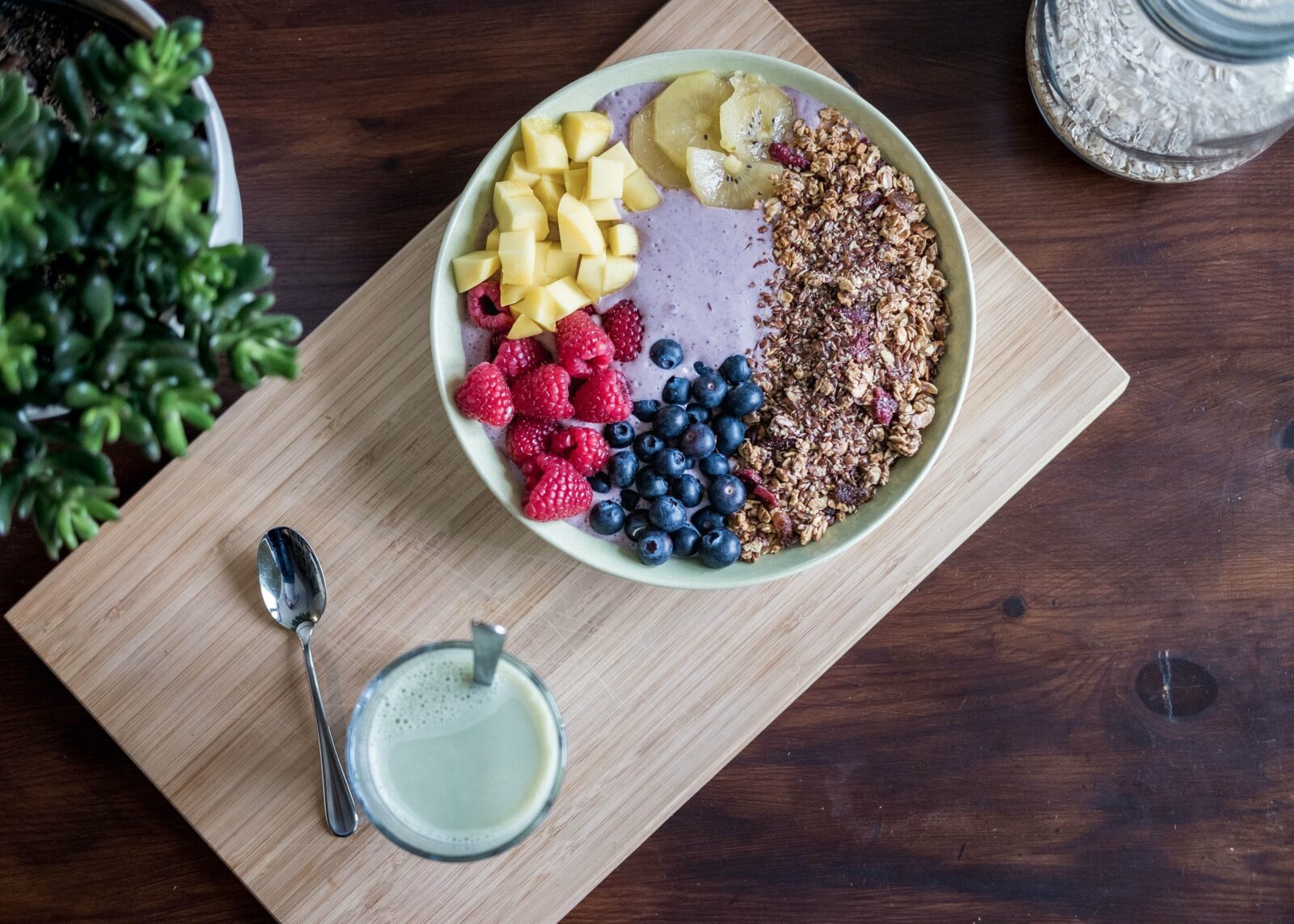
Take-Home Message:
Protein powders are not a healthy alternative to real, whole foods.
It’s far healthier and tastier to get protein in foods rather than supplements! This is good news because it’s much cheaper and yummier to eat whole foods.
Want to know how to get the protein you need from food – not powders? Here is a handy list of my favourite high-protein, real food picks!
Protein from whole foods instead
There are plenty of protein-rich foods that make for a healthy snack after you exercise. Try these high protein whole food options instead (and save money and your kidneys).
- One skinless chicken breast has about 30 grams of protein
- 100g of salmon has about 20g of protein
- A 170g tub of Greek yoghurt contains about 17 grams of protein
- Three large eggs contain about 18 grams of protein!
- One cup of lentils has about 18 grams of protein
- Half a cup of oats contains about 13 grams of protein
- One glass of milk (250ml) has 8-10g of protein
- One handful of almonds contains about 6 grams of protein
- One cup of quinoa has about 8 grams of protein
I also recommend adding some carbs to your protein snack to help refuel your glycogen stores. FYI – Carbs are not fattening. More on this at a later date.
High-protein, whole food meals
Instead of protein powders, why not try these whole food options. Bet they taste better than powdered water!
Breakfast
- A bowl of porridge made with milk with a handful of nuts/seeds or a drizzle of peanut butter
- A three-egg omelette with spinach and feta cheese with a piece of grainy toast
- Greek yoghurt with seeds and nuts
Lunch
- A quinoa salad with spinach, chickpeas and a tin of tuna
- Lentil salad with chopped herbs and red onion with white cheese like feta, haloumi or ricotta.
Dinner
- Grilled chicken with brussel sprouts and side of brown rice and quinoa mix
- A small salmon steak on the BBQ with salad and a corn on the cob
High-protein, whole food snacks
- A glass of milk!
- Two boiled eggs
- A handful of nuts and seeds
- A tub of greek yoghurt
- A slice of cheese of grainy toast
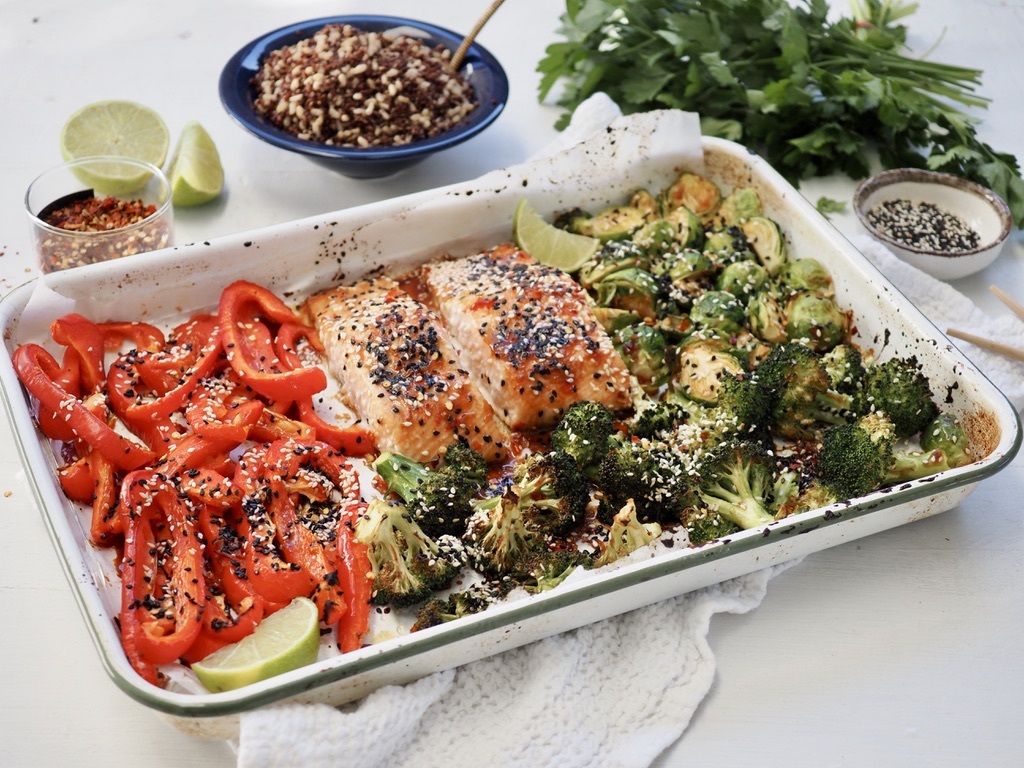
Healthy tips if you want to have protein powders
If you are having protein powders, then it helps to make smart choices. Here are some of my tips for making a better choice:
- Stick to the recommended serving size.
- Skim milk powder is a super cheap and easy way to add protein to milk. It’s far less trendy but will save you a bucketload.
- Pick a less processed powder if possible. Simple ingredients lists.
- Skip the concentrate blends that contain a lot more stuff that doesn’t do much.
- WPI (Whey Protein Isolate) appears to be the best choice based on the research as it has the full profile of essential amino acids.
- Order or buy in bulk to make it cheaper.
TIP: Aim to have your supplement of 20g of protein within 1 hour after exercising. It seems that it’s important to have it between this time. If you miss the window, you may as well eat normal food as the protein won’t do what is needed. (Nutrient timing revisited: is there a post-exercise anabolic window?, 2013)
Exceptions to the rule
I’m a big believer that there is no one-size-fits-all approach to health! Some people will benefit from protein supplements because they have higher energy and protein needs. If this is you, speak to a sports dietitian who can help.
Athletes and bodybuilders who exercise a lot will benefit from a high-quality protein at the right times at the right dosages.
If you’re really struggling to gain weight then I would also recommend adding a protein powder into your diet, particularly at night.
People with higher protein needs like people with cancer cachexia. Sometimes having a protein shake is easier for people to eat like the elderly.
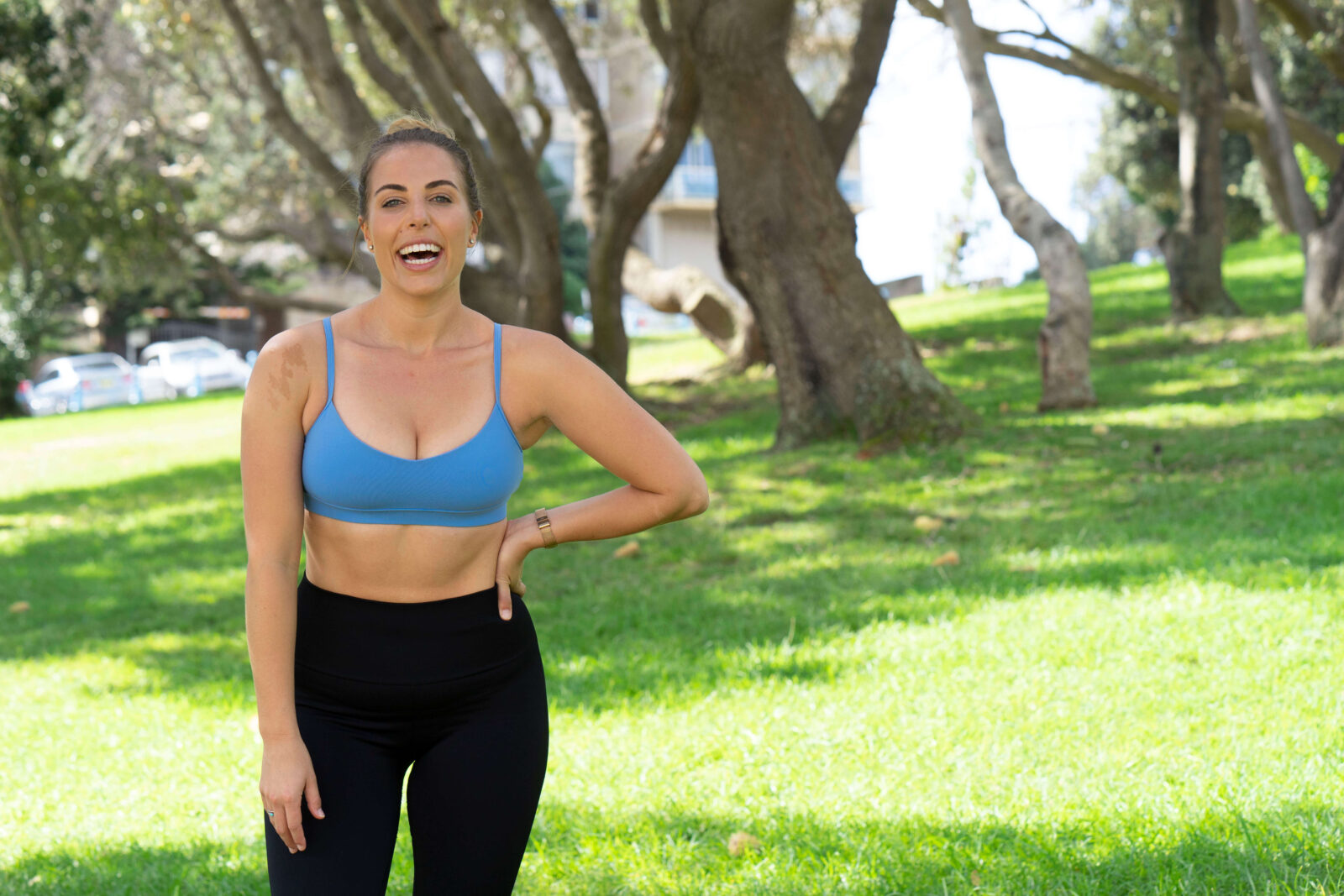
Please note that I don’t recommend any brands and I don’t align with any particular brands.
If you’re looking for quick and healthy recipes that will make your taste buds do a little dance, check out my app Back to Basics. It’ll take the stress, guesswork and confusion out of food and make cooking simple and fun.
